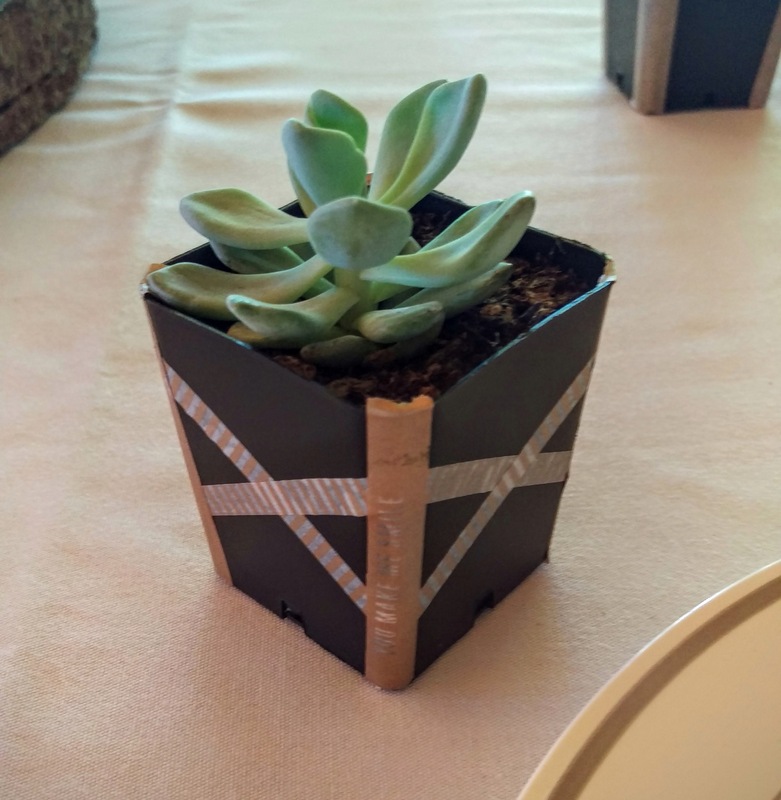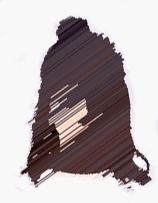Scoreboard: Succulents & The Unconscious Mind
Here's something messy and more than a little scientifically suspect while we spin up for Issue 1. Sorry about the blurry pictures! I hate my phone! - ed.
One of my most recommended books is Blindsight, by Peter Watts. It is a story of first contact, transhumans, truly alien entities, and hard science. I highly recommend it if you're in the mood for something moody, hostile, and impossibly self-assured. Why I love it so much, however, is because of the central question it asks: is consciousness a boon? Or is just a quirk of life here on Earth? Lurking underneath the surface throughout is the worry that human consciousness might be an evolutionary dead-end. If the purpose of life is survival and propagation, then yes, consciousness has taken us far, but can it take us farther? I won't spoil Blindsight's answer, because that would be rude, but I urge you to, well, ponder it; you're lucky you can.
Imagine you have a hot flame. Now, imagine you're not paying attention and your hand drifts into the danger area. By the time the feeling of heat reaches you ("you" being you, conscious entity) your body has already moved the hand away. The fact that my hand was in danger of injury and that fact never registered to me, dreaming-of-ice-cream-Aaryn, until after I, Aaryn's-big-dumb-body, pulled it away, is fascinating. The point here is that the sub-conscious or non-conscious mind works quick, quicker than what I think of as "me," and that's extremely valuable if you can tap into it. (Also, to finish the metaphor, consciousness is the ability to override this impulse and let your hand char, which is neat, but as in this case, usually not necessary).
As far as how much the unconscious mind is doing right, a study by Dijksterhuis et al experimentally determined that the unconscious mind can make complex decisions better than the conscious mind, with Dijksterhuis quipping "At some point in our evolution, we started to make decisions consciously, and we're not very good at it. We should learn to let our unconscious handle the complicated things." While this study has received a fair amount of pushback, the pushback seems to be-I'm honestly in over my head on this-that the Unconscious Thought Theory's effects might be overstated, not that it isn't there (though there are, from my perusing, plenty of studies arguing that it doesn't exist at all, and plenty that do! Science is hard!). Speaking personally, if the unconscious mind is merely as effective as the conscious mind, then that's still very exciting and more than a little scary? Worrying? Confusing? Why have this huge brain if I can offload my decision making to the lizard parts hiding in the dark?
The point of all of that was to introduce, or remind, you all of the limits and powers of the human body. Without sounding like a self-help speaker, the unconscious mind clearly does a lot everyday, and does so effectively without any conscious oversight, and I believe that trusting it by allowing it to creep into areas the conscious mind would usually control isn't necessarily the worst thing in the world. You process a lot of information everyday, some consciously, most not, and after some sleep and time you suddenly find it accessible and, more importantly, useful. You can see this especially in video games, sports, and other activities where decisions have to be made quickly. Trust your "instincts" (wrong word, right idiom); you know more than you know.
I, of course, apply this thinking mostly to eating food as nobody likes the person who hems and haws at a restaurant, trying to figure out what to order. Same logic applies to ordering at bars, what to wear, and any other low-stakes, time-limited decision. If you know what you like, or might like, and narrow it down to a set of choices, you can let your unconscious take the wheel and reap the benefits. Save your thoughts for things that are actually hard, like where to get coffee after. Do it right and there's no way you can lose. However, if there's anything I enjoy more than applying this thinking to my own life, it's watching it play out in other people's lives, whether by design or the whims of fate.
The Pacific Northwest is alright.
I was at a beautiful wedding last week in beautiful Bellingham, WA, and one of the activities that had to get done was the decoration of 100(ish) succulents, which were to be both table decorations and party favors. The decorators were the wedding party: an art student, a graphic designer (who showed up much later, preventing much of a positive effect), and a bundle of amateurs. The medium was simple: plastic containers and cool tape. Combine all of these elements with the inherent soft time limit, and you have my dream scenario, a vortex of unconscious pressures and creative limits. You do your best with what you have because you don't want to let down your friends (the bride & groom-hi! if you're reading), but you can only do so much with each one because there's so much to do. I believe the ancient adage of 'start taping and see where it goes' finally applies here. Don't overthink, tap into the unconscious mind, and act. Long story short, it was a lot of fun, and I would have been remiss if I hadn't documented each and every one.
And then ranked them.
My ranking methodology was simple: did I make this? If not, do I like this? I'm trying to rank these off my first reactions; as they were created, so shall they be reviewed. If you disagree with my rankings, then, well, good, I'd hope so. Consciousness and aesthetics go hand-in-hand, and if you want to know my answer for if consciousness is worth it, well, see the start of this sentence.
Category 1: Vertical Stripes
From galactic south to galactic north.



















Category 2: Horizontal Stripes
Finite space for finite ideas.







































Category 3: Diagonal Stripes
Let them skew.












Category 4: Combination Platters
Everything has been done. Time to find something new.





















Category 5: "Shapes"
We can be heroes.









And Then There Were Ten: A Top Ten
It's my list; it's my mess.









-
Skip all this if you just want to look at succulents.
-
As a quick aside, one of the more interesting phenomenon surrounding vision is the concept of blindsight. Blindsight is the ability to perceive and respond to visual information while having no conscious vision. This applies to forms of blindness caused by damage to the visual cortex, implying that the brain is doing some visual processing somewhere else, somewhere unconsciously. Basically, if you ask someone with blindsight to find someone in a room, they will be able to do so fairly successfully despite having no conscious vision. Again, here we find the unconscious mind, lurking in the shadows, helping us out.

Issue 1: "Idols"















